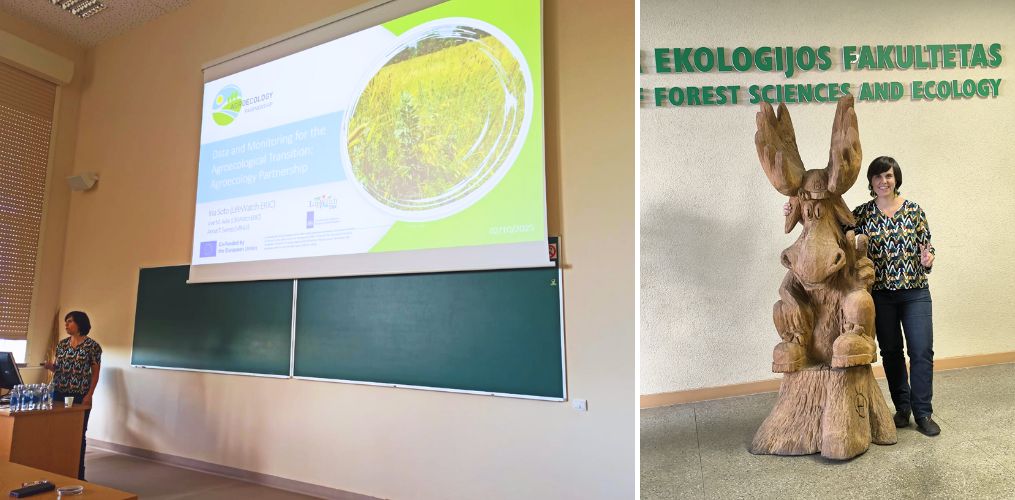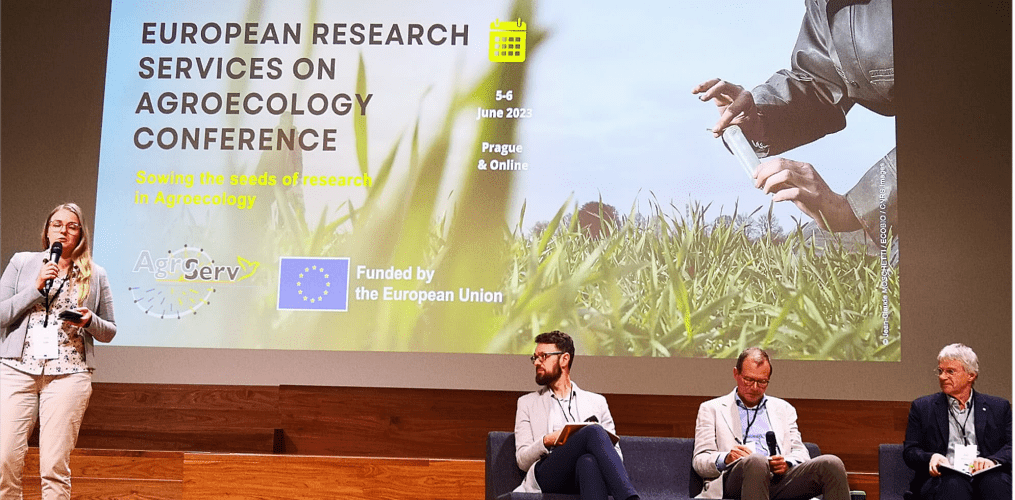The ERSAC Conference 2025 (European Research Services on Agroecology), from 1 to 3 October 2025, brought together scientists, decision-makers and practitioners across Europe to exchange strategies for a sustainable and resilient agriculture sector and advance actions in support of the European Green Deal and the Farm to Fork Strategy.
LifeWatch ERIC joined the conference under the framework of the AgroServ Project (https://www.lifewatch.eu/agroserv): a network of research infrastructures that offer integrated services, with the objective of accelerating the agroecological transition. LifeWatch ERIC contributes through its infrastructure, data services and coordination in order to strengthen the collaboration across infrastructures.
Iria Soto Embodas (Scientific Researchers at LifeWatch ERIC’s ICT Core, presented a talk on “Data and Monitoring for the Agroecological Transition in the Agroecology Partnership.”, in the session dedicated to Agroecological Transition for Sustainable and Resilient Agriculture. Iria emphasised the need for harmonised data collection and monitoring standards in Europe, and the role of ICT and digital platforms in evaluating, supporting, and scaling agroecological practices. In fact, associating agroecological policy and practice with robust monitoring and data systems can support sustainable farming at scale.
Are you curious to learn more about agroecology? We had a conversation on this topic with José Manuel Ávila-Castuera, Senior Scientific Manager. Listen to the podcast to learn more about this approach: https://www.lifewatch.eu/podcasts/agroecology-applying-ecological-processes-to-agriculture.

